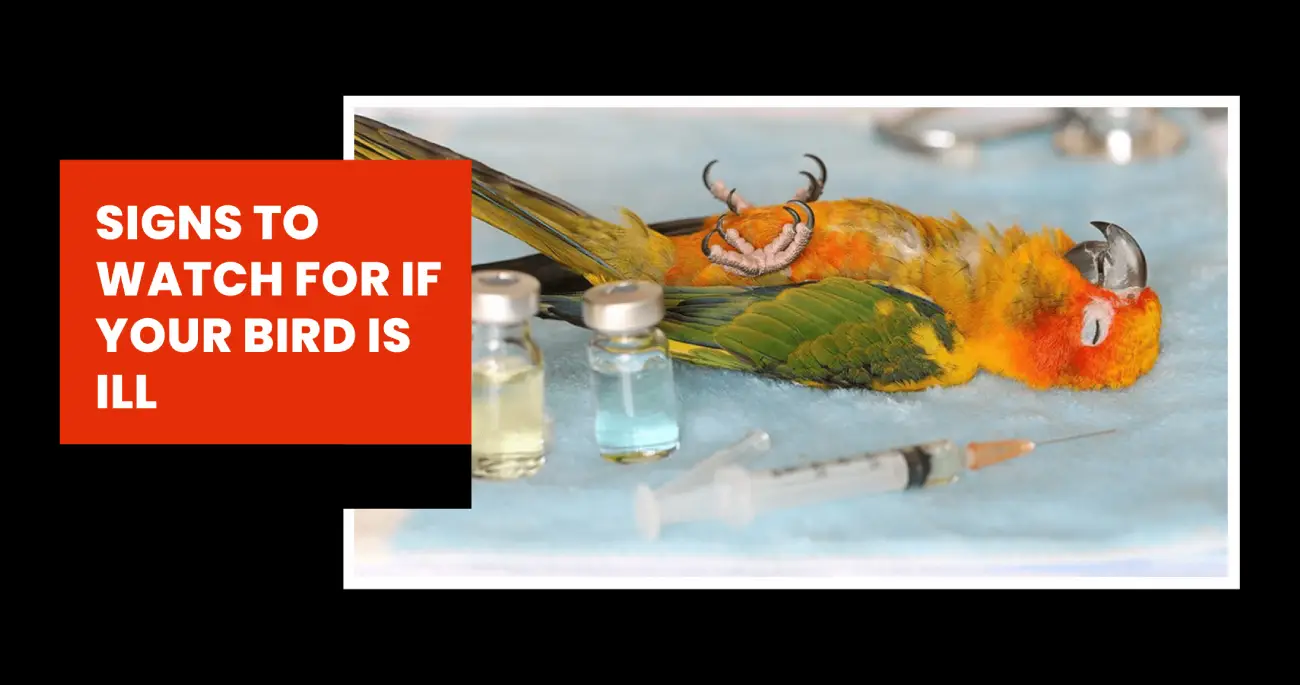
- Bird Boarding
- March 30, 2025
- No Comments
Signs to Watch for If Your Bird Is Ill
Birds are masters at hiding signs of illness, a survival instinct that protects them in the wild but can make it challenging for owners to detect when something is wrong. As a bird parent, understanding the subtle cues of sickness is crucial for early intervention and treatment. At Beakstreet Birds, we’re committed to helping bird owners recognize these signs and take the necessary steps to ensure their feathered friends stay happy and healthy.
In this blog, we’ll explore the most common symptoms of illness in birds, what they mean, and how you can act quickly to provide the care your bird needs.
1. Behavioral Changes
One of the first signs that your bird might be unwell is a change in behavior. Birds are usually active and curious, so any deviation from their normal routine should be taken seriously.
Watch for:
- Listlessness or lack of energy
- Loss of interest in play or interaction
- Increased aggression or irritability
- Sleeping more than usual or during odd hours
What It Means: These changes could indicate anything from stress to an underlying illness. Always observe your bird closely for additional symptoms.
2. Physical Symptoms
Physical changes are often the most noticeable indicators of illness in birds. Regularly inspecting your bird can help you catch these signs early.
Watch for:
- Fluffed-up feathers (even in moderate temperatures)
- Ruffled or unkempt feathers
- Drooping wings or difficulty perching
- Swollen eyes or crusty discharge from eyes or nostrils
- Visible injuries, lesions, or wounds
What It Means: These symptoms could be related to respiratory infections, injuries, or other health issues requiring immediate attention from an avian vet.
3. Changes in Droppings
Your bird’s droppings can provide valuable insight into their health. A healthy bird’s droppings should have three distinct parts: feces (solid), urates (white), and urine (clear).
Watch for:
- Runny droppings (diarrhea)
- Discolored droppings (black, bright green, or red)
- Undigested food in droppings
- Foul odor from droppings
What It Means: Changes in droppings could indicate digestive issues, dehydration, or infections. Consult your vet immediately if abnormalities persist.
4. Breathing Difficulties
Respiratory issues are common in birds and can escalate quickly if not treated promptly. Healthy birds breathe quietly and without effort.
Watch for:
- Open-mouth breathing or labored breathing
- Wheezing, clicking, or raspy sounds when breathing
- Tail bobbing with each breath (tail-assisted breathing)
- Nasal discharge or swelling around the eyes
What It Means: These are signs of respiratory infections or other serious conditions that require immediate veterinary care.
5. Appetite and Weight Changes
A sudden loss of appetite or unexplained weight changes can be a red flag for illness in birds.
Watch for:
- Not eating or drinking as usual
- Dramatic weight loss (monitor using a gram scale)
- Refusal to eat favorite foods
What It Means: Weight loss could indicate malnutrition, infections, or internal issues like organ dysfunction. Always weigh your bird regularly to track changes over time.
6. Unusual Posture or Movement
Birds naturally perch upright and move gracefully within their cage or aviary. Any deviation from this could signal discomfort or illness.
Watch for:
- Sitting low on the perch or on the cage floor
- Reluctance to move or fly
- Shifting weight awkwardly between legs
What It Means: These signs may indicate pain, injury, or weakness caused by illness.
7. Other Warning Signs
Sometimes the signs aren’t as obvious but still warrant attention:
- Dull, unfocused eyes
- Vomiting or regurgitation
- Missing feathers without explanation
- Lumps, bumps, or swelling anywhere on the body
What Should You Do If Your Bird Is Sick?
- Contact an Avian Vet Immediately: Birds often hide their illnesses until they are advanced; prompt veterinary care is essential.
- Keep Your Bird Warm: Maintain a temperature between 85–90°F using a heating pad near their cage (never directly inside).
- Quarantine Your Bird: Keep them away from other pets to prevent potential spread of illness.
- Provide Fresh Water and Favorite Foods: Encourage eating and hydration but avoid force-feeding unless directed by a vet.
Why Choose Beakstreet Birds?
At Beakstreet Birds in Sachse, TX, we prioritize the health and well-being of every bird we care for and sell. Our team provides expert advice on recognizing early signs of illness and offers resources like custom seed mixes and toys to keep your bird happy and healthy.
If you suspect your bird is sick or need guidance on avian care, don’t hesitate to reach out to us! We’re here to support you every step of the way.

